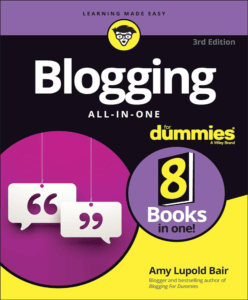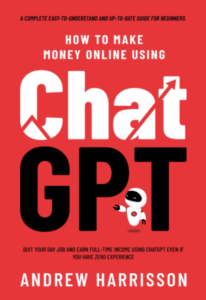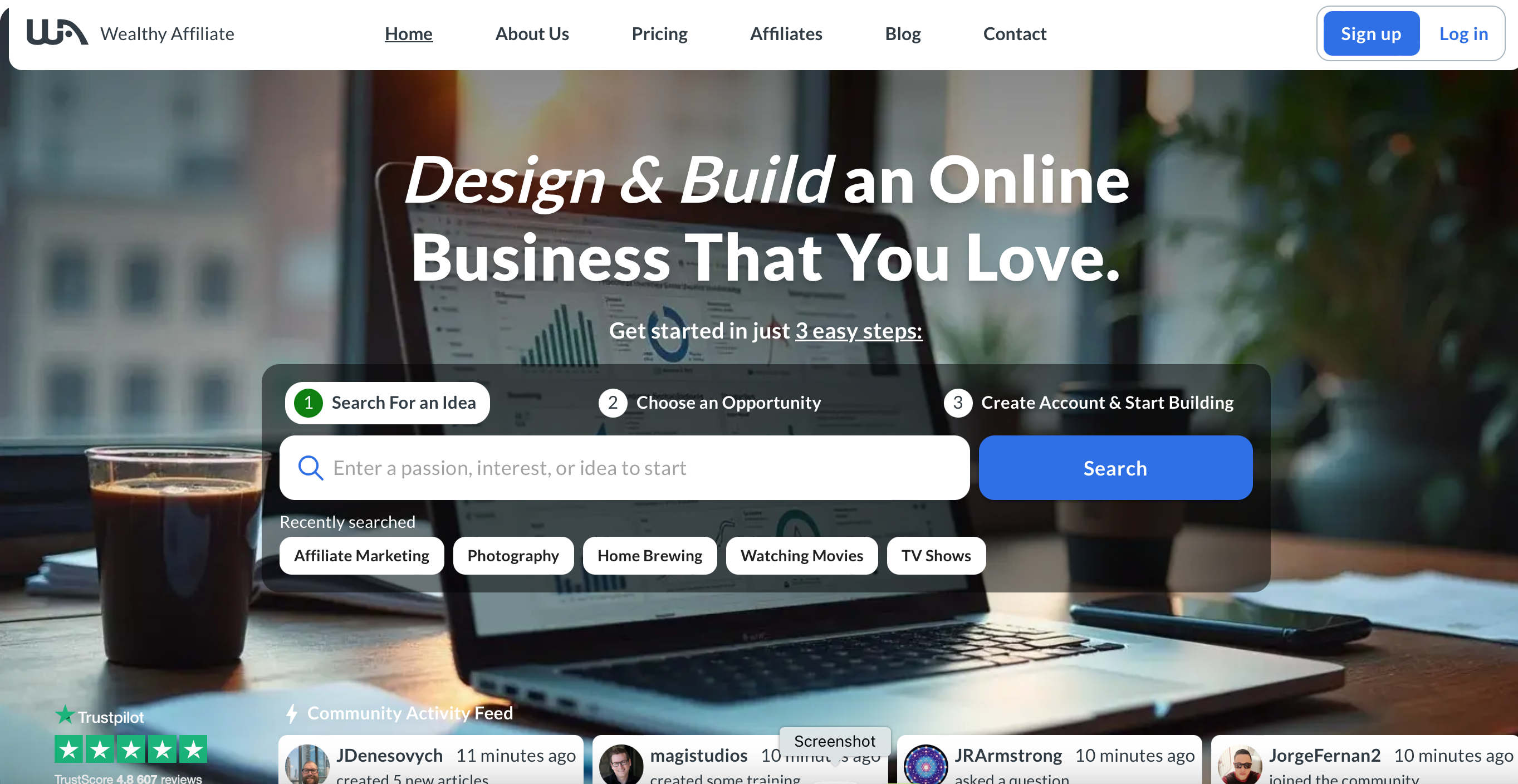How is AI going to affect bloggers who rely on Google for SERPS positioning?
Podcast – How AI is changing the Blogging game (9:55)
If AI is going to replace traditional search results, how can we get visitors for our websites?
AI is undoubtedly shaking up the world of search engines, and bloggers who rely on Google for SERP (Search Engine Results Page) positioning are right to be paying close attention.
The rise of AI-powered tools, such as ChatGPT, Bing’s integration of OpenAI, and Google’s own advancements (like Bard and Search Generative Experience), means the traditional search experience is evolving.
Users are getting more direct answers, sometimes bypassing the need to click through to a website. For bloggers, this means adapting and finding new strategies to maintain traffic is key.
Let’s explore how AI might impact blogging and how you can keep your website thriving despite these changes.
AI’s Impact on Traditional Search
For years, Google has been the king when it comes to driving organic traffic to websites.
Bloggers have mastered SEO (Search Engine Optimisation) to rank for the right keywords, attract visitors, and convert those visitors into subscribers, buyers, or community members.
AI is changing this game.
Here’s how:
1. Direct Answers from AI:
Search engines are increasingly using AI to provide direct answers to users’ questions. Instead of pulling a list of websites,
Google’s AI systems might now just give the user a direct response at the top of the search results.
For example, instead of offering a link to a blog post about “how to tie a necktie,” AI could provide step-by-step instructions immediately, reducing the need to visit a website.
2. Reduced Clicks on Traditional Results:
With AI producing answers in a conversational format or offering quick summaries at the top of the results, users might not even scroll down to traditional organic results as much.
This reduces the number of clicks bloggers can expect from search engines.
3. Changing SEO Priorities:
AI tools like Google’s Search Generative Experience rely on understanding not just keywords, but the entire context of the content.
The old game of keyword stuffing or obsessing over keyword density is becoming less important.
AI now focuses on relevance, intent, and how well your content answers the user queries.
So, How Can Bloggers Get Visitors Moving Forward?
The shift AI is creating might seem daunting, but it’s not the end of the road for bloggers.
If anything, it’s a chance to innovate and expand beyond traditional SEO strategies. Here’s how you can future-proof your blog:
1. Focus on Building a Brand, Not Just a Blog
If AI is going to give users answers directly on the SERPs, bloggers need to focus more on becoming trusted brands rather than just focusing on search rankings.
People trust brands they know, and they’ll still click through to websites they believe provide valuable, in-depth information.
Building authority in your niche will help people recognize you as an expert beyond just a name that shows up in a search.
• Tip: Build email lists, create courses, or develop exclusive content to turn visitors into a loyal audience.
That way, you’ll depend less on random Google searches and more on people who actively seek you out.
2. Content that AI Can’t Replicate
AI can offer quick answers, but it’s still limited when it comes to nuanced, personal, or in-depth content.
Your secret sauce as a blogger is your unique voice, opinions, and the depth of your research. AI is efficient at summarizing content, but it’s still no match for well-crafted, personal insights or entertaining storytelling.
• Tip: Invest time in creating long-form content, case studies, or personal anecdotes that offer value beyond what a brief AI summary can provide.
Share personal stories, make your audience laugh, or dive deep into topics that require expertise.
For instance, instead of writing “how to” guides that AI can easily summarize, share your own experiences with the tools or tactics you’re talking about.
3. Diversify Your Traffic Sources
This one is key. If you’ve been relying primarily on Google to send you traffic, it’s time to spread your wings a bit.
SEO should remain part of your strategy, but you’ll want to look at alternative ways to drive visitors.
• Social Media: Platforms like Pinterest, Instagram, or Twitter can still be huge traffic drivers.
AI might provide answers, but social media is still where people go for discovery, entertainment, and connection.
• YouTube: Video content continues to grow in popularity. If your blog topics can be turned into video content, this is a great way to reach an audience and drive traffic back to your site.
• Email Marketing: Don’t underestimate the power of building an email list. Once people have subscribed to your list, you can bring them back to your site regularly without relying on Google.
• Direct Engagement: Engage with your audience directly through webinars, podcasts, or even forums. You’ll build relationships and trust, ensuring people seek out your website, no matter what AI does to search engines.
4. Optimize for AI Search Engines
AI may be changing the landscape, but it’s also presenting new opportunities.
For example, optimizing for voice search can help ensure your content is used in AI-generated responses.
Additionally, focus on creating “topic clusters,” where your content covers a subject in-depth, with multiple interlinking posts on related topics.
AI tends to pull answers from comprehensive and well-organized content hubs.
• Tip: Structure your content in a way that AI can easily understand.
Make your blog posts well-organized with clear headings, and aim to answer key questions directly.
Think of your posts as resources that AI might want to refer to.
5. Focus on E.A.T. (Expertise, Authority, Trustworthiness)
Google has made it clear that content created by experts will be prioritized, especially in a world where AI is generating so much information.
Establishing yourself as a credible authority will become even more critical as AI shapes the SERP landscape.
• Tip: Back up your blog posts with research, cite credible sources, and keep your content up-to-date.
Showcase your expertise, whether through certifications, credentials, or by building connections with other experts in your niche.
6. Engage Your Audience On-Site
With AI streamlining answers, once visitors land on your site, it’s crucial to keep them engaged.
This means having a great user experience, clear calls to action, and content that encourages further interaction.
• Tip: Add elements like quizzes, interactive tools, or personalised recommendations to engage visitors and keep them exploring your content longer.
The more time they spend on your site, the better!
The Bottom Line
AI may change the way users interact with search engines, but the fundamentals of building a successful blog remain.
Focusing on quality content, diversifying traffic sources, and creating deeper engagement with your audience will still yield great results.
Blogging is not just about getting found on Google – it’s about connecting with people, providing value, and building a loyal audience that will come back time and time again.
How do you feel about the rise of AI in search?
Do you see it as a threat or an opportunity?
Let me know in the comments – I always enjoy hearing your thoughts and feedback!
Visited 16 times





